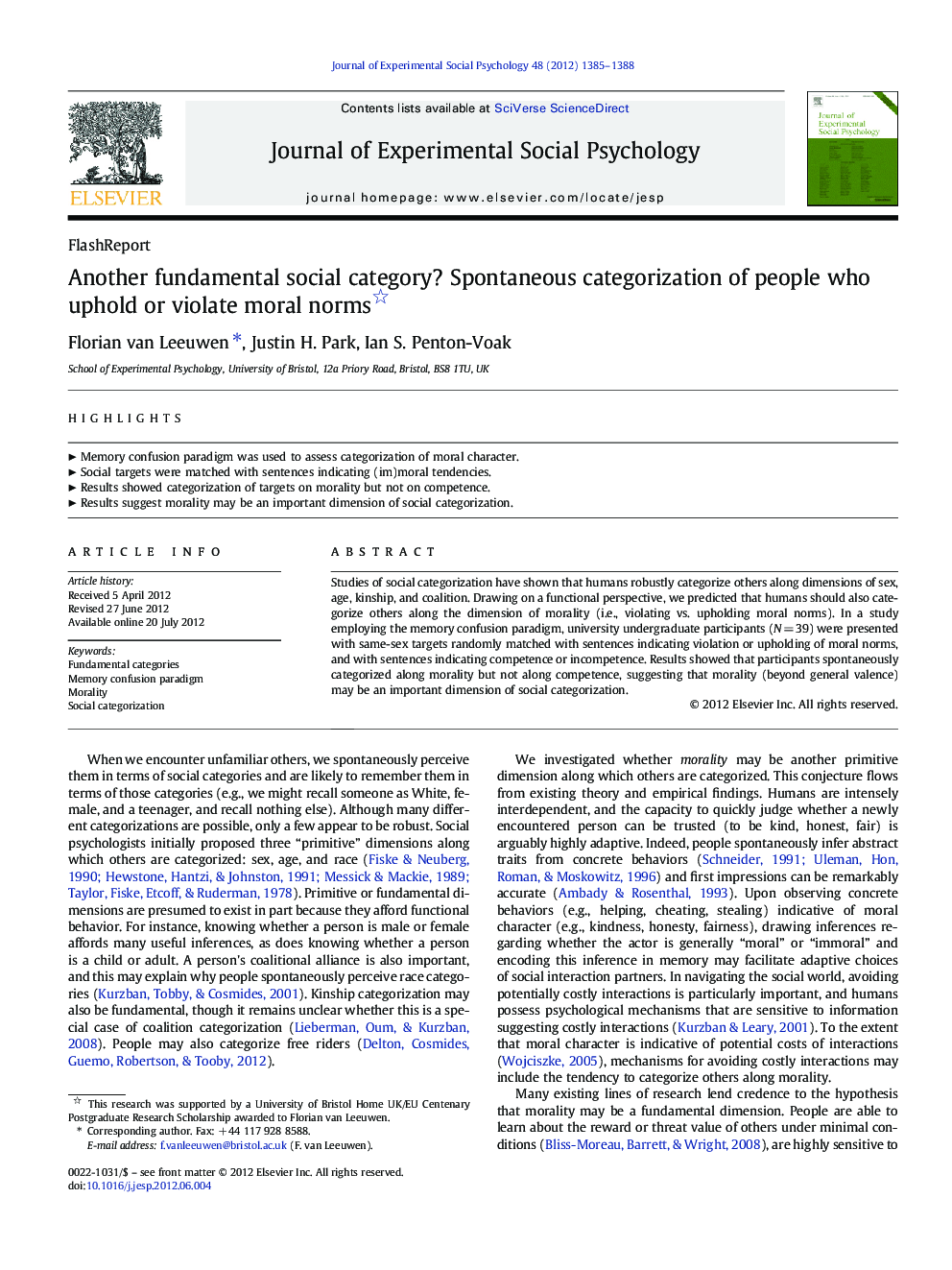| Article ID | Journal | Published Year | Pages | File Type |
|---|---|---|---|---|
| 948092 | Journal of Experimental Social Psychology | 2012 | 4 Pages |
Studies of social categorization have shown that humans robustly categorize others along dimensions of sex, age, kinship, and coalition. Drawing on a functional perspective, we predicted that humans should also categorize others along the dimension of morality (i.e., violating vs. upholding moral norms). In a study employing the memory confusion paradigm, university undergraduate participants (N = 39) were presented with same-sex targets randomly matched with sentences indicating violation or upholding of moral norms, and with sentences indicating competence or incompetence. Results showed that participants spontaneously categorized along morality but not along competence, suggesting that morality (beyond general valence) may be an important dimension of social categorization.
► Memory confusion paradigm was used to assess categorization of moral character. ► Social targets were matched with sentences indicating (im)moral tendencies. ► Results showed categorization of targets on morality but not on competence. ► Results suggest morality may be an important dimension of social categorization.
